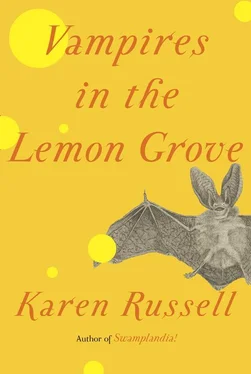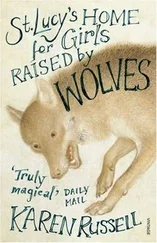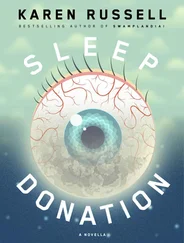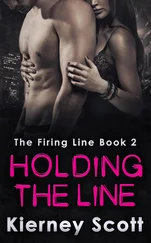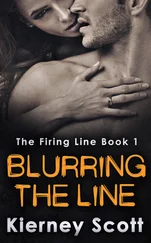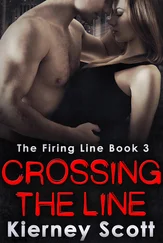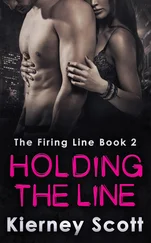“Hullo!” She walks around to the front of the table. “Did you fall asleep, sir?”
“Oh, God. Sorry, ma’am,” says the soldier. He lifts his face stiffly out of the headrest and rolls onto his side, sits up. “Guess I zoinked.”
“Zoinked?”
“Passed out. You know, I haven’t been sleeping at night. A lot of pain in my lower back, ma’am.”
“Sorry to hear it.” She pats his shoulder, notes that he immediately tenses. “Well, let’s get you some help with that.”

How old was Sergeant Derek Zeiger when he enlisted? Seventeen? Twenty? As she heats the oils for his massage, Beverly becomes very interested in this question. Legally, nowadays, at what age can you do business with your life’s time — barter your years for goods and services? A new truck, a Hawaii honeymoon, a foot surgery for your mother, a college degree in history? When can you sell your future on the free market? In Esau, Wisconsin, you have to be eighteen to vote, to smoke cigarettes, to legally accept a marriage proposal or a stranger’s invitation to undress; at twenty-one, you can order a Cherry-Popper wine cooler and pull a slot lever; at twenty-five, you can rent a family sedan from Hertz. At any age, it seems, you can obtain a room by the hour at the Jamaica Me Crazy! theme motel next to the airport, which boasts the world’s dirtiest indoor waterfall in the lobby. The gift store sells padded bras and thongs and a “Caribbean wand” that looks like a stick of cotton candy with tiny helicopter rotors, for some erotic purpose that Beverly, at forty-four, still feels too young to guess at.
At eighteen, Beverly had no plans for her future. She had zero plans to make a plan. To even think that word, the “future,” caused a bile that tasted like black licorice to rise in the back of Beverly’s throat. All that year her mother had been dying, and then in April, two months before her high school graduation, her haunted-eyed father had been diagnosed with stomach cancer, a double hex on the McFadden household. Six months to a year, the doctors said. Mr. Blaise McFadden was a first-generation Irishman with hair like a lion’s and prizefighter fists, whose pugilist exterior concealed a vast calm, a country of calm of which Beverly secretly believed herself to be a fellow citizen, although she had never found a way to talk to her dad about their green interior worlds or compare passports. His death was not the one for which she’d been preparing. What a joke! Pop quiz, everybody! She’d spent her senior year cramming for the wrong test: Mrs. Marcy McFadden’s passing.
“Go to school,” said Janet, Beverly’s older sister. “Daddy doesn’t need you underfoot. They can take care of themselves. Nobody wants you to stay.”
But Beverly didn’t see how she could leave them alone with the Thing in the house. Beverly’s parents were coy, demurring people. If they heard Death mounting the stairs at night, footsteps that the teenage Beverly swore she could feel vibrating through the floorboards at three a.m., nobody mentioned this intrusion at breakfast.
Beverly enrolled in the “Techniques of Massage” certificate program at the Esau Annex because it required the fewest credit hours to complete. She’d surprised herself and her instructors by excelling in her night classes. Beverly felt that she was learning a second language. As a child she’d been excruciatingly shy, stiffening in even her parents’ embraces, but suddenly she had a whole choreography of movements and touched people with a purpose. I can’t believe I’m telling you this , a body might confide to her. Spasming and relaxing. Pain unwound itself under her palms, and this put wonderful pictures in her head: a charmed snake sinking back into its basket, a noose shaking out its knots. In less than six months, Beverly had passed her tests, gotten her state certification, and found a job in downtown Esau; she was working at Dedos Mágicos before her twentieth birthday. At twenty, she’d felt smugly certain that she’d made the right choice.
Six months after his diagnosis of stomach cancer, right on schedule, Beverly’s father died; her mother hung on for another decade. She’d flummoxed her oncologists with her fickle acrobatics, swinging over the void and back into her body on the hospital bed while the life-recording machines telegraphed their silent electronic applause. Beverly arranged for the sale of the farmhouse and used the proceeds to pay down her mother’s staggering medical bills. For three years her mother lived in Beverly’s apartment. In remission, then under attack again; in and out of the Esau County Hospital. Beverly tracked the rise and fall of her blood cell counts, her pendulous vitals. Twenty-nine when her mother entered her final coma, she was accustomed by that time to a twilight zone split between work and the ward.
In her mother’s final days, massage was the last message to reach down to her — when her sickness had pushed her to a frontier where she could no longer recognize Beverly, when she didn’t know her own face in a mirror, she could still respond with childlike pleasure to a strong massage. Beverly visited the mute woman in the hospital gown every day. She gave this suffering person a scalp-and-neck massage, and swore she could feel her real mother in the shell of the stranger smiling up at her. Marcy McFadden was gone. But Beverly could read the Braille of her mother’s curved spine — it was composed in the unspeakable, skeletal language that she had learned at school.

Beverly smiles down at him, rubbing the oil between her hands. She pulls at his trapezius muscles, which are dyed sky-blue. His tattoo is the stuff of Dutch masters. Beverly is amazed that this level of detail is possible on a canvas of skin. Practically every pore on his back is covered: in the east, under his bony shoulder, there’s an entire village of squat huts, their walls crackled white-and-black with the granular precision of cigarette ash. South of the village there is a grove of palm trees, short and fat. A telephone pole! Beverly grins, as proudly happy as a child to identify nouns. A river dips and rises through the valley of his lower back. Tiny cattle with dolorous anatomies are grazing and bathing in it, bent under black humps and scimitar-horns. The sky is gas-flame blue, and right in the center of his back a little V of birds tapers to a point, creating the illusion of a retreating horizon. Several soldiers occupy the base of Zeiger’s spine. What kind of ink did this tattoo artist use? What special needles? The artist dotted desert camouflage onto the men — their uniforms are so infinitesimally petaled in duns and olives that they are, indeed, nearly invisible against Sergeant Zeiger’s skin. Now that she’s spotted them once, though, she can’t stop seeing them: their brown faces are the size of sunflower hulls. Somewhere a microscope must exist under which a tattoo like this would reveal ever-finer details — freckles, sweat beads, bootlaces. Windows that open onto sleeping infants. The cows’ tails swatting mosquitoes. Something about the rice-grain scale of this world catches at Beverly’s throat.
“What’s the name of this river back here?”
She traces the blue ink.
“That’s the Diyala, ma’am.”
“And this village, does it have a name?”
“Fedaliyah.”
“That’s in Iraq, I’m assuming?”
“Yup. New Baghdad. Fourteen miles from the FOB. We were sent there to emplace a reverse osmosis water purification unit at JSS Al Khansa. To help the Iraqi farmers feed their jammous .”
“Jammous?”
“Their word. Arabic for ‘water buffalo.’ We’re probably mispronouncing it.” He wiggles his hips to make the bulls dance. “That was a big part of my war contribution — helping Iraqi farmers get some feed for their buffaloes. No hamburgers and fries in Fedaliyah, Bev, in case you’re curious. Just jammous .”
Читать дальше
